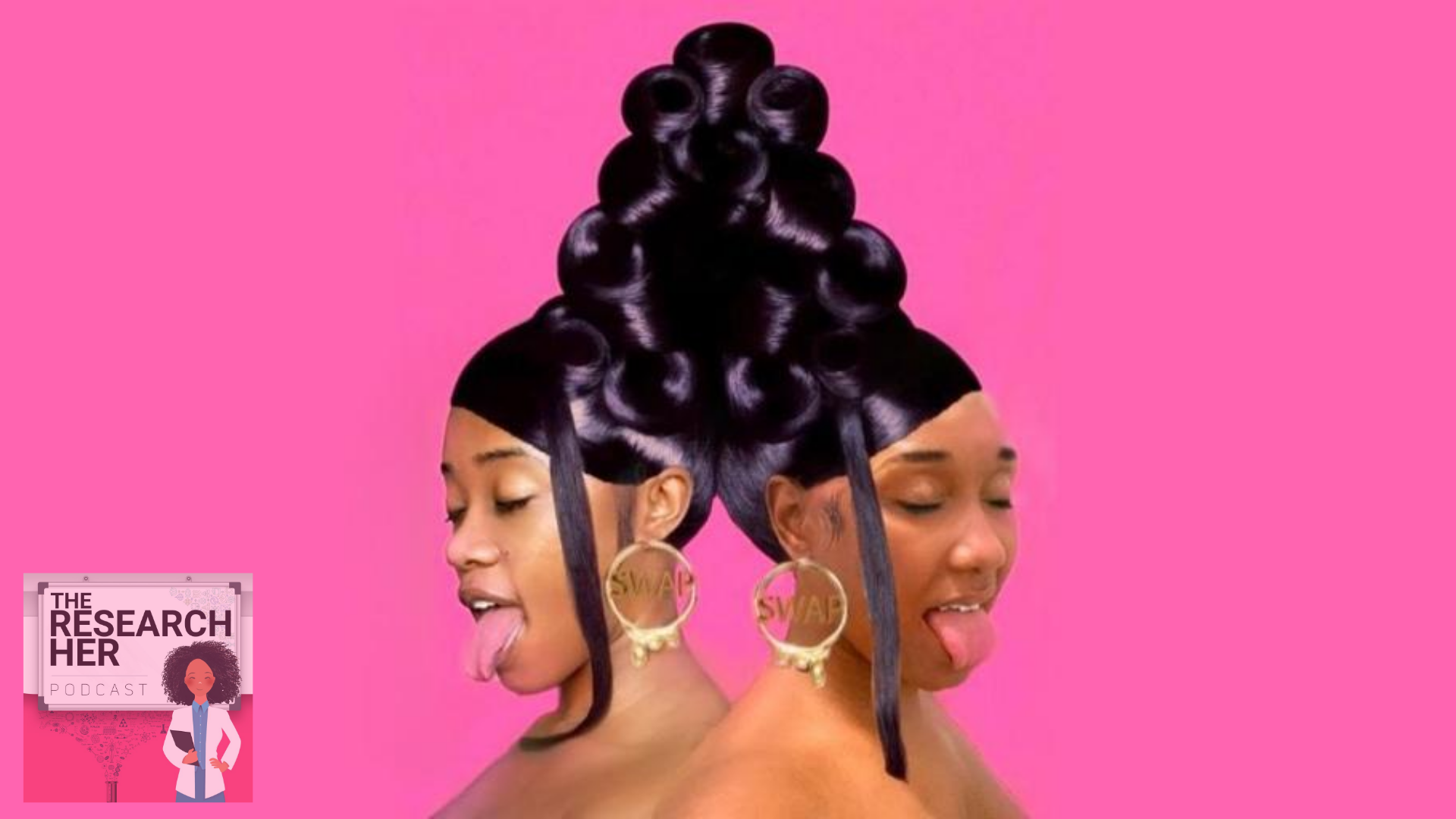While Cardi B and Megan Thee Stallion's "WAP" has been deemed a bop by many, the tune has also ignited a debate about whether it's healthy to have a "Wet Ass Pussy," which is the meaning behind the now famous acronym.
While some debate whether the song is appropriate for airwaves, doctors attempted to break down the innuendos in the song, arguing whether your lubricated privates are signs of a healthy sexual drive.
Blavity spoke with Black scientist and podcaster Dr. Elissia Franklin, a woman who turned her passion for wellness into a podcast in which she educates Black women about the power of their bodies. Franklin admits she immediately sprang into creative mode upon hearing the song and wanted to dedicate her podcast's 40th episode to the meaning behind the song's lyrics. She was on lunch break when she first heard the bop.
It all started with one particular "WAP" line:
"When Cardi said 'I want you to touch that lil' dangly thing that swing in the back of my throat,' I thought what is that dangly thing called (it’s the uvula) cause I most definitely had forgotten since taking biology," the researcher said. "Then, I started wondering how else does this song relate to science."
While conservatives and hoteps alike condemned the song for its sexual overtness, Franklin opted to go the direction of body positivity, soliciting fellow Black women in medicine who are ob/gyn's and/or sex positivity educators. The episode, titled "The Science of Wet A** Pu$%y" or "SWAP" begins with a warning for those who may be uncomfortable with the p-word before Franklin goes on to discuss her intent to "normalize all pussy types."
She then pivots to gynecologist Dr. Ruth Arumala who shares who says the varying nature of vaginal discharge is dependent upon age, arousal, birth control and life stressors.
"So essentially sis, what is coming out of you is normal AF," Franklin concludes after the clip.
Sex educator Portia Brown and international behavioral research scientist Dr. Jasmine Abrams also joined Franklin, a postdoctoral researcher at Purdue University, on the episode.
Abrams said things like diet, exercise, alcohol consumption, menstruation and mental health conditions like depression can also play a part in the vagina's ability to produce lubrication.
Abrams then dives into why there's such an emphasis on vaginal lubrication in American culture. She summed it up with the three P's: pleasure, patriarchy and the "please disease."
"Patriarchy has such a huge role in how women see their bodies, what they think their bodies should do," Abrams continued. "I love Cardi B, I love Megan Thee Stallion and a host of other female entertainers but when women rap about or sing about how wet their vaginas can be, think about the context they're saying that in. More often than not, a wet vagina is described as something that is able to attract male partners. It's something that is able to keep a male partner around."
She goes on to reference the "WAP" lyric in which Cardi B raps, "I don't cook, I don't clean but let me tell you, I got this ring."
"In the context of a song called wet ass pussy, it means that's why she got the ring," Abrams said. "That our value and our ability to get partners or resources is hinged on our ability to please a male partner or a penis, in particular."
Abrams then shares that through research, she's found that women are half as likely to orgasm than their male partners during sex.
The episode also touches on how women in cultures where lubricated vaginas aren't preferred take extreme measures to please their partners, how confidence can affect sexual experiences, the evolutionary purpose of pre-ejaculation and why, as Abrams says, "most women don't want you playing DJ on their clitoris."
Franklin even shared with Blavity some efforts women can make outside of the podcast to get more in touch with their sexuality. She references Dr. Donna Oriowo, a guest on a prior podcast, who discussed how white supremacy can influence our views of sexuality as well. Brown suggests the book Pussy Prayers Black Girl Bliss.
Most importantly, she suggests women talk more about their sexuality.
"Do not be afraid of having uncomfortable conversations about sexuality. Go into these conversation understanding that you may something wrong and open to corrections," Franklin said. "Do you know what is the difference between sex and gender? Ask and listen. Like the guests said on the episode, you should have conversations with your partner about sex and your needs outside of the bedroom."
The Research Her aims to help Black women "make better health and lifestyle choices" through discussions of mental health, stereotypes, relationships, education and other forms of wellness in addition to WAP.
Listen to the full "SWAP" episode here.
